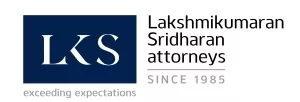- within Government and Public Sector topic(s)
The Delhi High Court has set aside the decision of the Assistant Controller of Patents and Designs rejecting a divisional application for invention titled 'System for Advanced Bi-directional Predictive Coding of Interlaced Video'.
The Assistant Controller had rejected the application on grounds of Sections 16(1), 16(3) and 3(k) of the Patents Act, 1970, i.e., the claims made in the divisional application were not distinct from the claims of parent application and that the subject invention was not patentable, being a computer program per se.
Encapsulating a side-by-side comparison of a claim in both the applications – parent as well as from divisional application, the Court observed that even if the foundational teachings or descriptions appear similar, it is the specific framing and content of the claims that truly differentiate one invention from another.
The Court hence was of the view that Controller's stance that the divisional application's claims were merely reiterations of the parent application lacked merit.
Allowing the appeal, the Court also noted that while the subject matter of both applications (parent as well as divisional application) revolved around video decoding and the divisional application's claims drew inspiration from the parent application, the modus operandi delineated in each was different. One was method-centric, emphasizing on 'how' it is done; the other (divisional application) was system-centric, illuminating 'what' it does.
The Court in Microsoft Technology Licensing, LLC v. Assistant Controller of Patents and Designs [Judgement dated 11 August 2023] however remanded the matter to the Assistant Controller for re-examination of the divisional application on the objections pertaining to non-patentability under Section 3(k). It noted that the decision to disallow the application under Section 3(k) was devoid of any reasoning and the Advocate representing the Assistant Controller was not able to substantiate this ground during the hearing as well.
The content of this article is intended to provide a general guide to the subject matter. Specialist advice should be sought about your specific circumstances.


